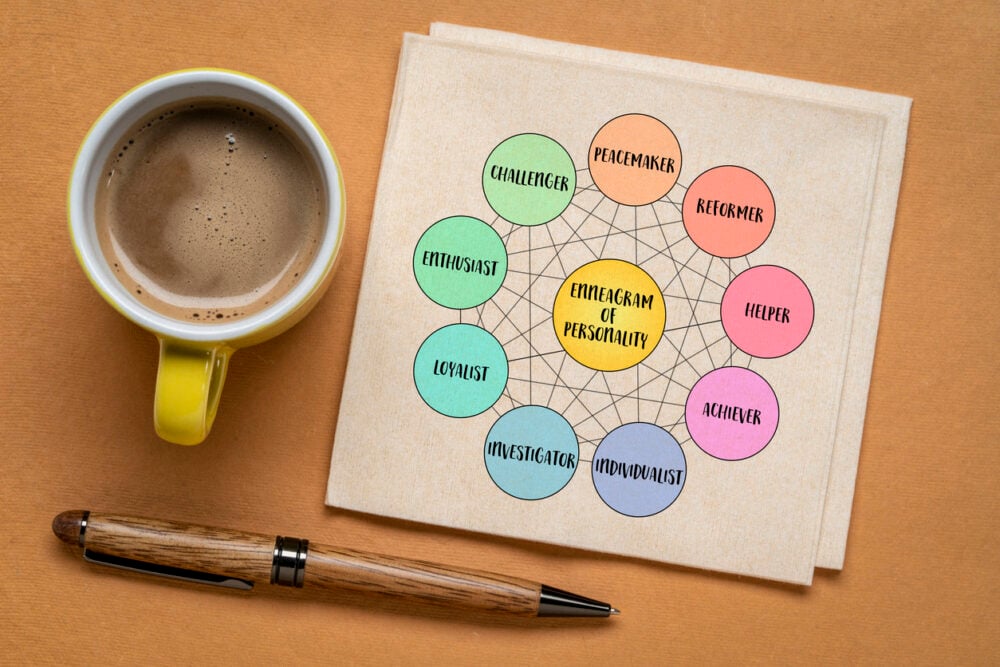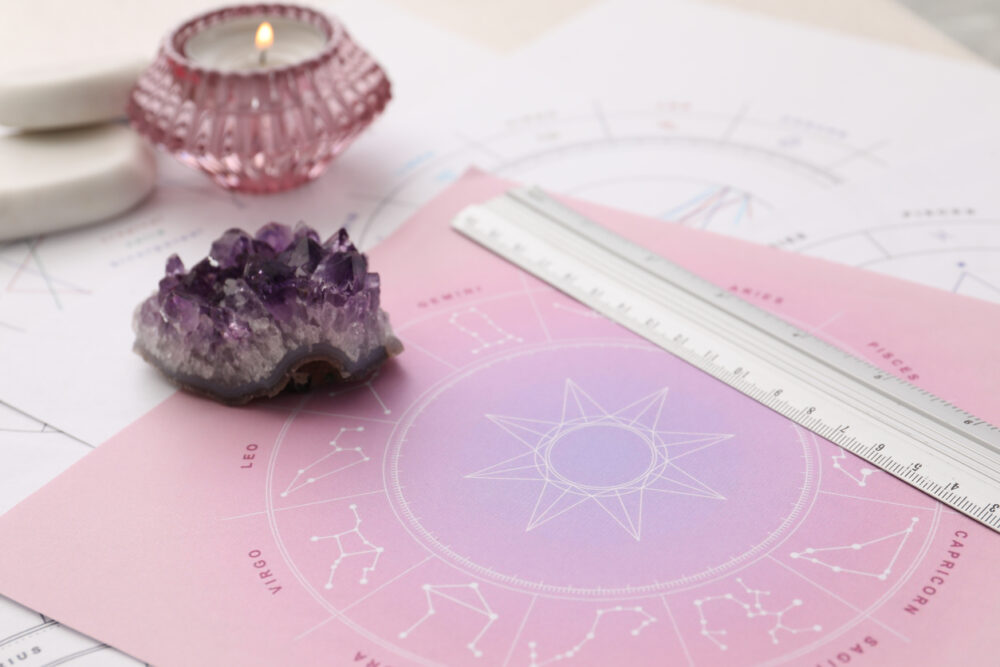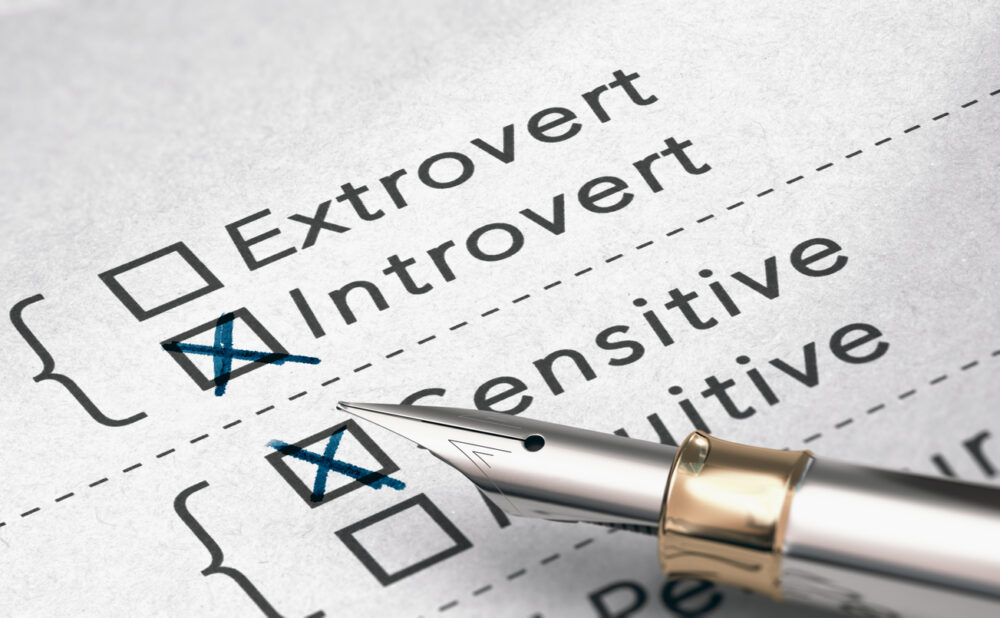What feels like self-discovery is really just a setup for targeted ads.

You take a quiz. It tells you something that feels right—bold but sensitive, logical but misunderstood. You nod. Maybe you even share it. But that quiz wasn’t built to help you grow. It was built to sort you. Into types, into colors, into neat little boxes that say more about your consumer habits than your inner world. These personality tests might sound deep, but most of them are just dressed-up marketing tools.
They’re quick. They’re catchy. They give you a sense of control. But real self-awareness doesn’t come in four letters or five colors. And the more we rely on these simplified frameworks, the more we start to believe our complexity can be summed up by a result that was never meant for us—it was meant for whoever paid to reach us. These 10 tests may feel personal, but their real goal is anything but.
1. The Myers-Briggs test is outdated, unreliable, and still everywhere.

You’ve seen it in hiring forms, dating profiles, and workplace trainings. The four-letter combo—INTP, ENFJ, ISTJ—feels like a secret code to your personality. But the Myers-Briggs test was never designed as a scientific tool. It was created by a mother-daughter duo with no background in psychology, based loosely on Carl Jung’s theories. Joseph Stromberg and Estelle Caswell report in Vox that despite its popularity, the test has failed to meet key standards of psychological reliability and validity.
Studies show that results often change from one sitting to the next. It also ignores core aspects of personality—like emotional regulation or mental health—and splits people into binary categories that rarely reflect how we actually behave. So why is it still used? Because it’s simple. And simple is easy to package, sell, and apply in business settings. Whether it fits or not, the label sticks—and companies love that.
2. The Enneagram turns deep insecurity into digital branding.

The Enneagram feels spiritual, introspective, mysterious. Nine numbers. Nine paths. Plenty of room to explore your inner self. But online, it’s become another identity badge. Instead of being a tool for growth, it’s a way to box people in. You’re not avoiding conflict—you’re a Nine. You’re not self-critical—you’re a One. The nuance gets lost as the labels get louder.
Jennifer V. Fayard writes in Psychology Today that personality tests like the Enneagram are often oversimplified and commercialized, turning meaningful introspection into a marketable identity. Entire content ecosystems exist to serve Enneagram types. Products, playlists, candles, coaching sessions. Your “number” becomes a targetable identity. It starts to shape how you see yourself, even if the categories were never meant to be rigid. The more you buy into it, the more you end up aligning with a story you didn’t write—one that happens to be very easy to market around.
3. Color personality tests make everything feel playful and nothing feel true.

Pick a color. Now learn everything about your strengths, weaknesses, and workplace behavior. It’s fun. It’s simple. And it’s everywhere in corporate training sessions. But color-based personality tests strip away complexity to make people easier to categorize. You’re red if you’re bold. Blue if you’re emotional. Yellow if you’re optimistic. Green if you’re analytical. That’s it. That’s the whole system.
Experts at SIGMA Assessment Systems point out that these color tests often lack scientific grounding and fail to reflect the complexity of established personality research. That makes them ideal for businesses looking to streamline team dynamics—but it doesn’t make them insightful. Real personality psychology is messy, full of contradictions and fluid traits. Color tests skip all that nuance in favor of neat, color-coded roles that reduce people to a cartoon version of themselves.
4. Buzzfeed-style quizzes offer identity as entertainment—and data collection.

“Which type of bread matches your energy?” “What decade are you emotionally stuck in?” These quizzes don’t claim to be scientific, but they still shape how people think about themselves. They mix nostalgia, flattery, and vague affirmations into answers that feel more comforting than accurate. And while they seem harmless, the real function is often hidden: data mining.
Every answer helps platforms refine their understanding of your preferences. What you like, how you think, what you click. These quizzes aren’t about your soul—they’re about segmentation. The more they learn about you, the more effectively they can serve you content, ads, and recommendations that keep you scrolling. What starts as fun quickly becomes another way to feed the algorithm while quietly shaping how you define yourself.
5. Astrology-style personality tests use cosmic language to sell lifestyle branding.

Even if you don’t believe in astrology, you’ve probably taken a test that borrows its aesthetic—mystical visuals, elemental types, cycles of growth and shadow. These tests trade on a spiritual tone to sell insight, but they rarely provide more than poetic generalizations. You’re told you’re fire-aligned, moon-driven, or growth-oriented—but those phrases work because they’re vague enough to apply to almost anyone. That looseness makes them feel intuitive. But it also makes them ripe for branding. Once you’ve identified with your “type,” there’s a whole world of content, merch, and coaching to go with it. These tests don’t offer truth.
They offer belonging—packaged in soft colors and soothing affirmations. The danger isn’t in enjoying them. It’s in mistaking lifestyle branding for self-understanding. And the more beautiful the result looks, the more you’re likely to believe it’s real.
6. Strengths-based quizzes can box you in under the guise of empowerment.

Tests like StrengthsFinder promise clarity. You’ll finally know your top five traits, your unique edge, your natural genius. But the more you buy into the results, the more you start organizing your whole identity around them.
Instead of growing, you stay stuck. “I’m a Maximizer,” you say. Or, “I’m just not strategic.” Suddenly, a tool meant to unlock potential starts to define your limits. These quizzes rarely explore context. They don’t ask why you developed a certain trait, or what might change under stress. And because the results are framed positively, they discourage deeper questions. It feels good to be told your qualities are strengths. But growth doesn’t come from staying in your comfort zone. It comes from examining the parts that don’t fit a flattering narrative—something these tools often skip in favor of feel-good labels and marketable outcomes.
7. Attachment style tests reduce your relationships to one-word labels.

You take a quiz and it tells you you’re “anxious,” “avoidant,” “secure,” or “fearful-avoidant.” That might sound insightful at first. Finally, a word for why you get needy—or why you shut down. But most attachment tests don’t reflect the full depth of your experience. They flatten years of emotional learning into a single result, and leave out the fact that styles aren’t fixed. They’re fluid. Contextual. Changeable.
The risk is that you start treating your label as a diagnosis. You explain away your patterns instead of working on them. Or worse—you use someone else’s label to justify your reaction to them. “They’re avoidant” becomes the end of the conversation, not the start of understanding. These tests give just enough language to feel powerful, but not enough nuance to actually heal anything. Insight isn’t the goal. Categorization is.
8. Workplace personality tools often reinforce hierarchy, not understanding.

From DISC assessments to color energies to “workplace personas,” personality tests are often sold to companies as tools for collaboration. But in practice, they tend to reinforce roles, not challenge them. You’re the “Driver,” they’re the “Supporter,” and suddenly everyone’s boxed into a type that determines how they’re treated.
These tools are rarely trauma-informed, culturally aware, or context-sensitive—but they’re treated like truth. The result usually is that you get managers who rely on test results instead of conversations. Teammates who dismiss feedback because “it’s just not their style.” And a culture where people are managed based on labels, not real behavior. These tools aren’t always harmful—but they are shallow. And when companies use them to skip the hard work of building trust and communication, they stop being helpful and start being another way to sort people into silos.
9. “What type of friend are you?” quizzes blur insight with flattery.

These tests show up on social media all the time. You’re the loyal one, the planner, the wildcard. It’s fun, harmless, a little dopamine hit of identity. But it’s also a kind of emotional bait. These quizzes aren’t there to challenge you—they’re there to affirm you.
You’re not asked to reflect. You’re told what role you play, and then encouraged to share it like a badge.
Over time, that reinforcement shapes behavior. You start to play into the type, even if it’s not really who you are in every friendship. And if your role shifts—or your needs change—you might feel like you’re doing something wrong. These kinds of tests flatten the dynamic nature of relationships into characters. You’re not a type of friend. You’re a human being. But that’s harder to monetize.
10. “Shadow self” tests create false depth with vague results.

These tests promise to reveal your hidden self—the part you repress, the wounds you carry, the darkness within. It sounds profound. But most of these tests operate on abstract language, broad categories, and vague archetypes.
You get a result like “The Rebel” or “The Caretaker,” and you’re told this is your unconscious drive. Maybe it resonates. But is it insight, or just clever writing? The shadow self is a real psychological concept. But it’s messy, nonlinear, and deeply personal. No online quiz can do that work for you. These tests offer the illusion of self-awareness without the discomfort of actual self-confrontation. You feel like you’re learning something deep, when you’re really just reading a horoscope in darker colors. That’s not to say the questions are useless—just that the answers are rarely as deep as they seem.